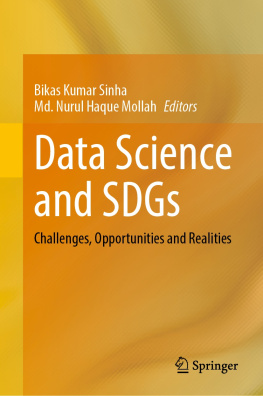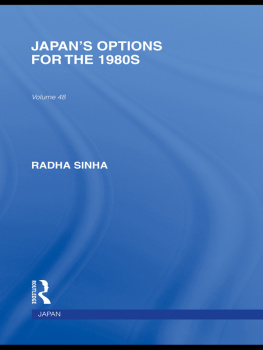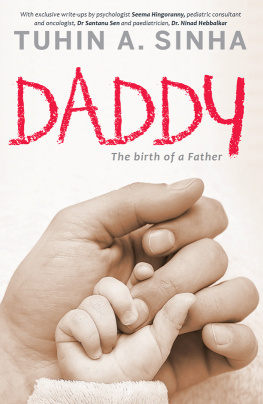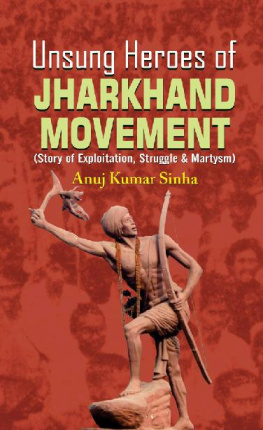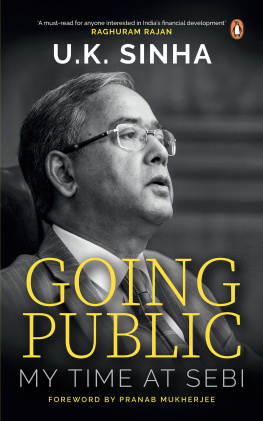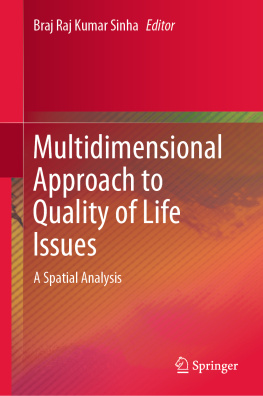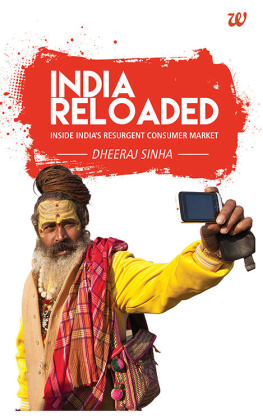Bikas Kumar Sinha - Challenges, Opportunities and Realities
Here you can read online Bikas Kumar Sinha - Challenges, Opportunities and Realities full text of the book (entire story) in english for free. Download pdf and epub, get meaning, cover and reviews about this ebook. year: 2021, publisher: Springer Singapore, genre: Politics. Description of the work, (preface) as well as reviews are available. Best literature library LitArk.com created for fans of good reading and offers a wide selection of genres:
Romance novel
Science fiction
Adventure
Detective
Science
History
Home and family
Prose
Art
Politics
Computer
Non-fiction
Religion
Business
Children
Humor
Choose a favorite category and find really read worthwhile books. Enjoy immersion in the world of imagination, feel the emotions of the characters or learn something new for yourself, make an fascinating discovery.
- Book:Challenges, Opportunities and Realities
- Author:
- Publisher:Springer Singapore
- Genre:
- Year:2021
- Rating:4 / 5
- Favourites:Add to favourites
- Your mark:
- 80
- 1
- 2
- 3
- 4
- 5
Challenges, Opportunities and Realities: summary, description and annotation
We offer to read an annotation, description, summary or preface (depends on what the author of the book "Challenges, Opportunities and Realities" wrote himself). If you haven't found the necessary information about the book — write in the comments, we will try to find it.
Challenges, Opportunities and Realities — read online for free the complete book (whole text) full work
Below is the text of the book, divided by pages. System saving the place of the last page read, allows you to conveniently read the book "Challenges, Opportunities and Realities" online for free, without having to search again every time where you left off. Put a bookmark, and you can go to the page where you finished reading at any time.
Font size:
Interval:
Bookmark:
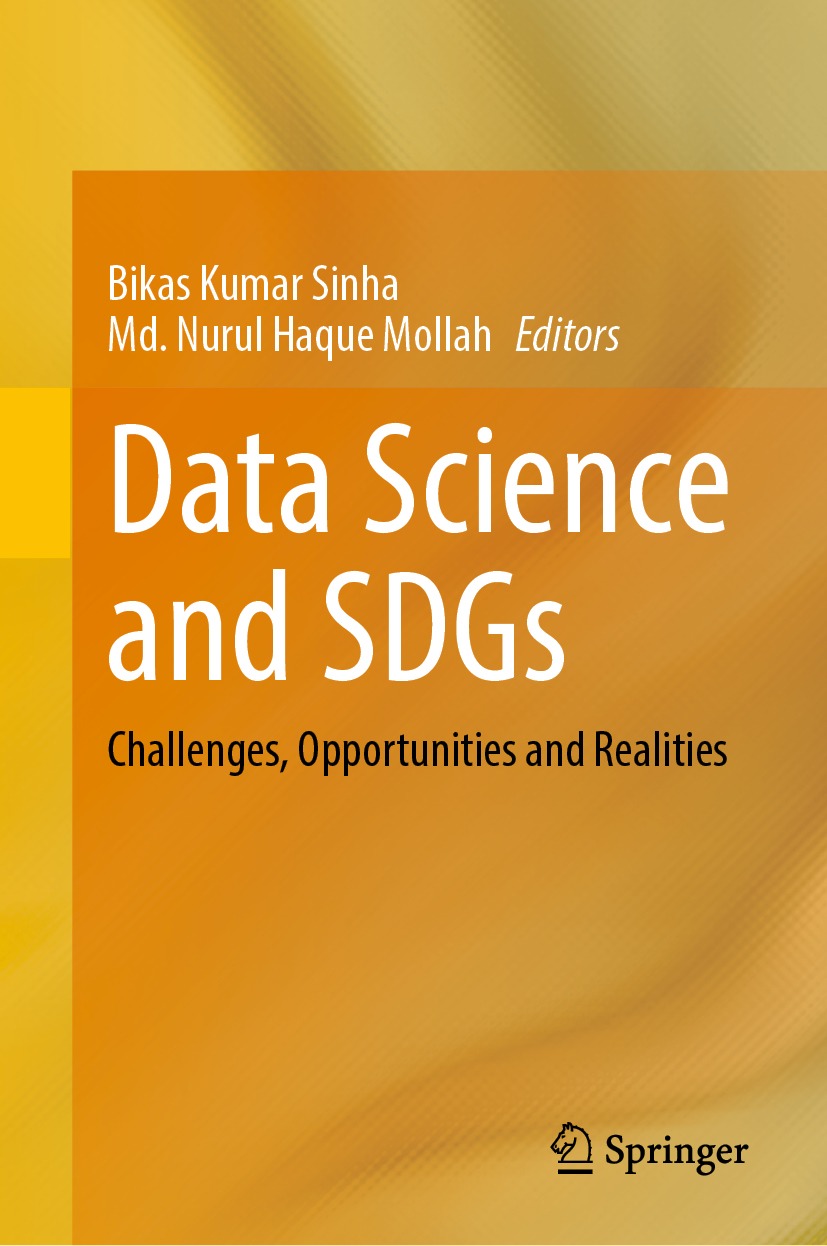

This Springer imprint is published by the registered company Springer Nature Singapore Pte Ltd.
The registered company address is: 152 Beach Road, #21-01/04 Gateway East, Singapore 189721, Singapore
Many of us are presumably aware of the Govt. of Bangladesh Report (2017) on Data Gap Analysis for Sustainable Development Goals (SDGs): Bangladesh Perspective by the Planning Commission, Govt. of Bangladesh, General Economics Division (GED) (Making Growth Work for the Poor) Planning Commission, January 2017. Keeping this background in mind, the Department of Statistics, University of Rajshahi, organized an appropriate and timely International Conference on Data Science and SDGs: Challenges, Opportunities and Realities held in December 1819, 2019.
As a Chairperson of both the Opening and Closing Sessions of the conference, I was indeed delighted to witness the success of the events that brought together so many stakeholders from divers fields, and also the tremendous interest it generated among teachers, research scholars and student alike.
The conference was attended by over 300 participants from different countries including Bangladesh, Finland, India, Korea, Malaysia and USA. There were 150 Speakers (2 Keynote, 5 Plenary, 36 Invited and 107 Contributed) who presented their papers; there were 60 posters and 27 organizations/research groups took part in the exhibition. It is a matter of great pleasure that the conference was also attended by policymakers, researchers, government entities, and nongovernment organizations.
The organizers of the conference did not waste any time to visualize the importance of publication of Conference Proceedings and the approach was made to Springer Nature (SN), New Dehli with necessary documents. The proposal was readily accepted by SN. I thank the organizers and the Editorial Board members for their commendable effort.
The proceedings volume covers topic mainly on SDGs, bioinformatics, public health, medical informatics, environmental statistics, data science and machine learning. It is understood that almost all of the topics are covered by thoroughly statistical models and methods, with examples using real data including graphical illustrations, as and wherever necessary.
The proposed book can be used as a research monograph for practitioners or as a reference text for the researchers. As a research monograph, it unifies the literature on data science and SDGs and parents important result in an integrated manner and highlights topics that need further research. It is also suitable for use as a reference text for graduate and advanced undergraduate level programs in SDGs, bioinformatics, public health, medical informatics, environmental statistics, data science and machine learning.
I hope that this volume will be very useful for ushering analytical insights in data science and SDGs in communities around the world. I am very happy to endorse this publication anticipating that it will foster further research interest in attaining the SDGs.
To a large extent, 17 Sustainable Development Goals (SDGs), also known as the urgent Global Goals, were adopted by all United Nations Member States in 2015 as a universal call to action to end poverty, protect the planet and ensure that all people enjoy peace and prosperity by 2030.
Monitoring the progress made by different countries towards meeting the SDGs is extremely crucial to track progress. Towards this, concerted efforts of the Government of Bangladesh are recorded in a Report (2017). Data-driven measurement of progress needs to be distributed to stakeholders, mainly policymakers, researchers, government entities, civil society, nonprofit organizations, etc. Decision based on data can be used to re-align and influence governments, businesses, citizens to accelerate the progress. Measuring and controlling data on SDGs is quite difficult to handle and distribute by using traditional data gathering and manipulation techniques due to the volume and distribution of data points around the globe. This is where Data Science, especially the Big Data issues come into play.
Bringing together these stakeholders was the goal of the International Conference on Data Science and SDGs: Challenges, Opportunities and Realities organized by the Department of Statistics, University of Rajshahi, Bangladesh during December 1819, 2019. This Department tries to organize an international conference in three years interval on different burning issues, and it was the 7th of such events. The conference was attended by over 300 participants from different countries including Bangladesh, Finland, India, Korea, Nepal, Malaysia and USA. There were 150 Speakers (2 Keynote, 5 Plenary, 36 Invited and 107 Contributed) who presented their papers; 60 presenters presented their posters and 27 organizations/research groups took part in the exhibition.
Immediately after the conclusion of the conference, the organizing committee and the programme committee decided to publish proceedings volumes. Accordingly, an Editorial Board was formed with ten (10) members, keeping Springer Nature (SN), New Delhi in mind:
Professors (1) Bikas K Sinha (Retired Professor, Indian Statistical Institute, Kolkata) and (2) Md. Nurul Haque Mollah (University of Rajshahi)Joint Co-ordinators
(3) Prof. Malay Ghosh (University of Florida, Gainesville, USA)
Font size:
Interval:
Bookmark:
Similar books «Challenges, Opportunities and Realities»
Look at similar books to Challenges, Opportunities and Realities. We have selected literature similar in name and meaning in the hope of providing readers with more options to find new, interesting, not yet read works.
Discussion, reviews of the book Challenges, Opportunities and Realities and just readers' own opinions. Leave your comments, write what you think about the work, its meaning or the main characters. Specify what exactly you liked and what you didn't like, and why you think so.

